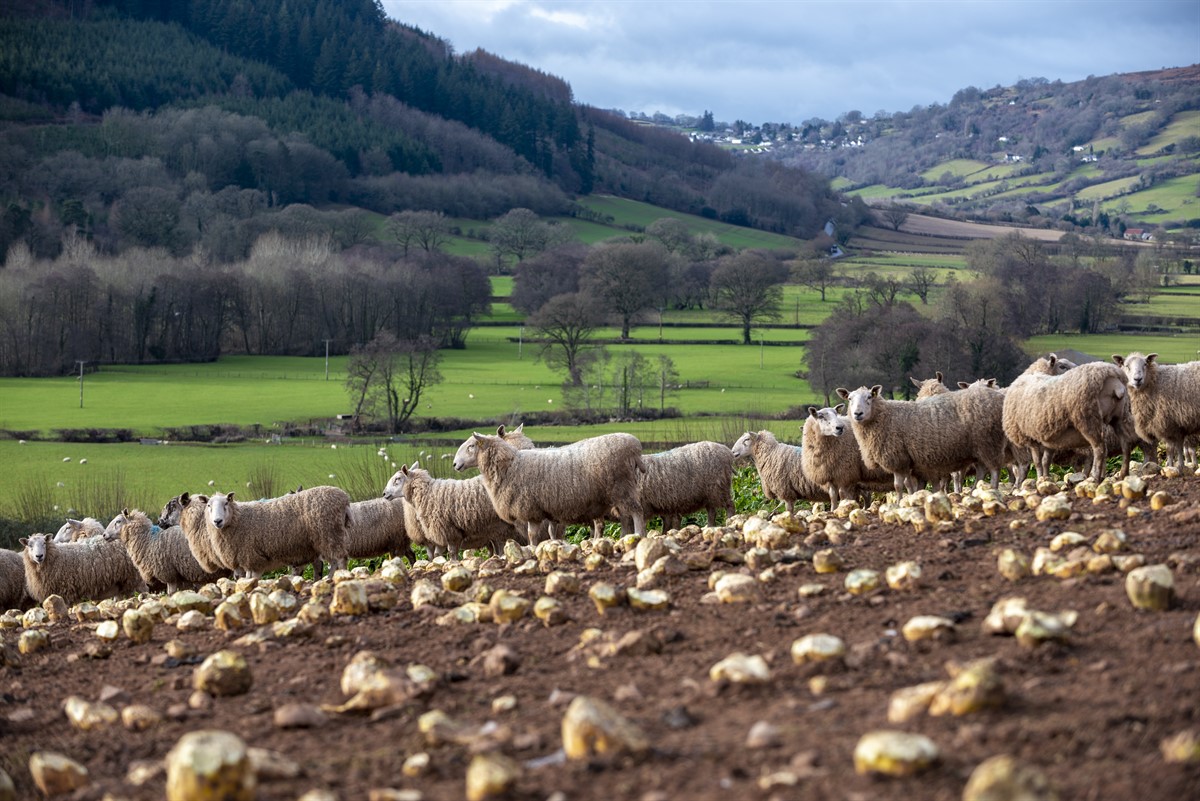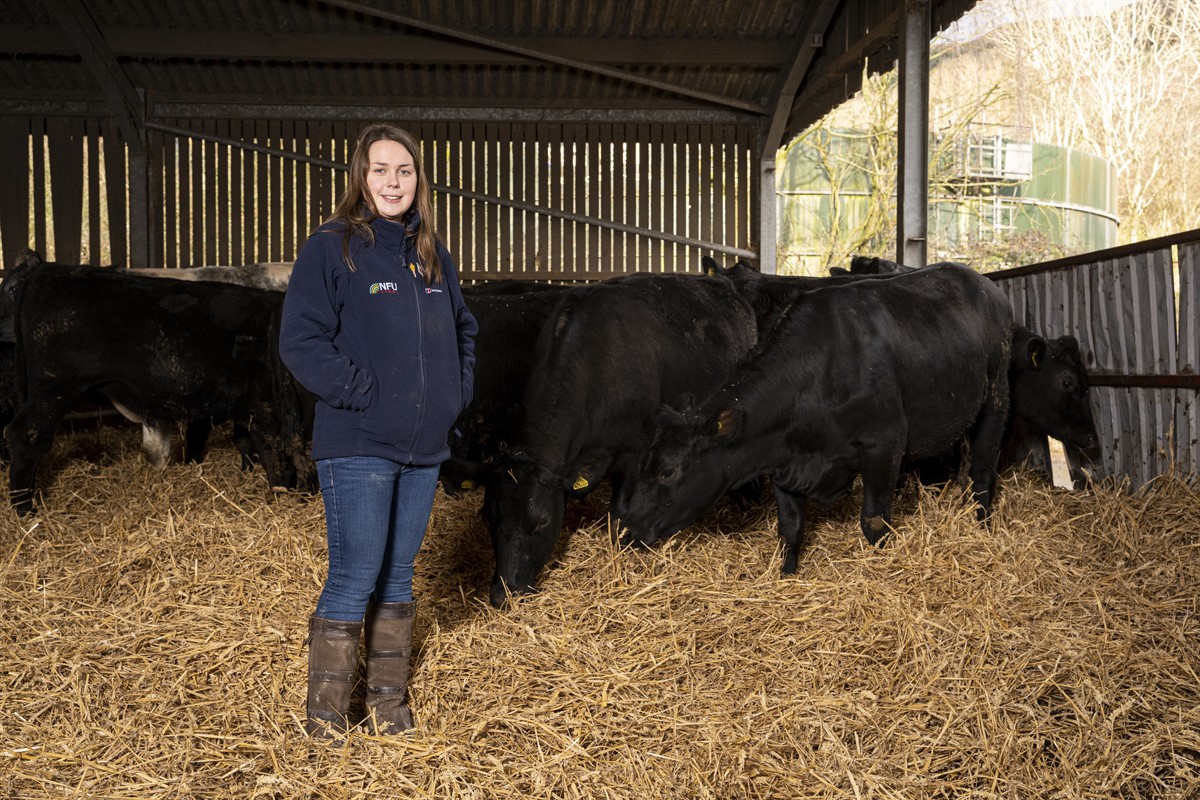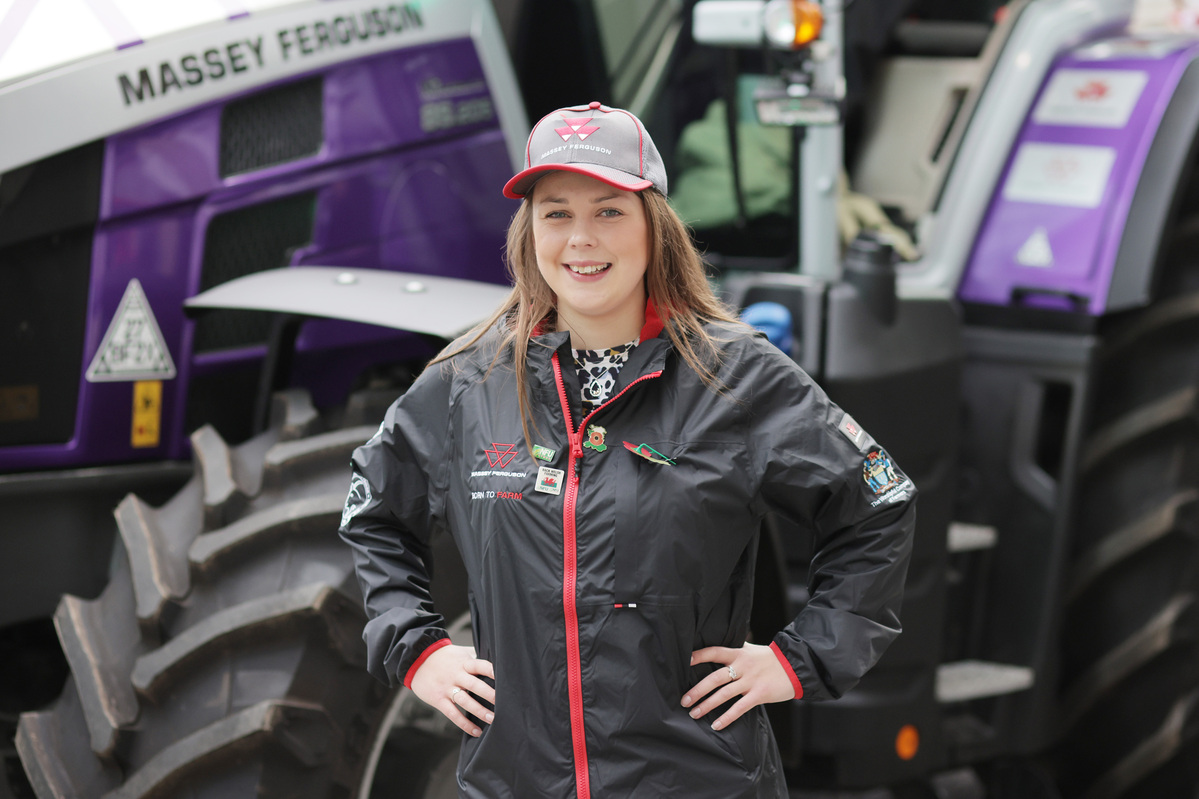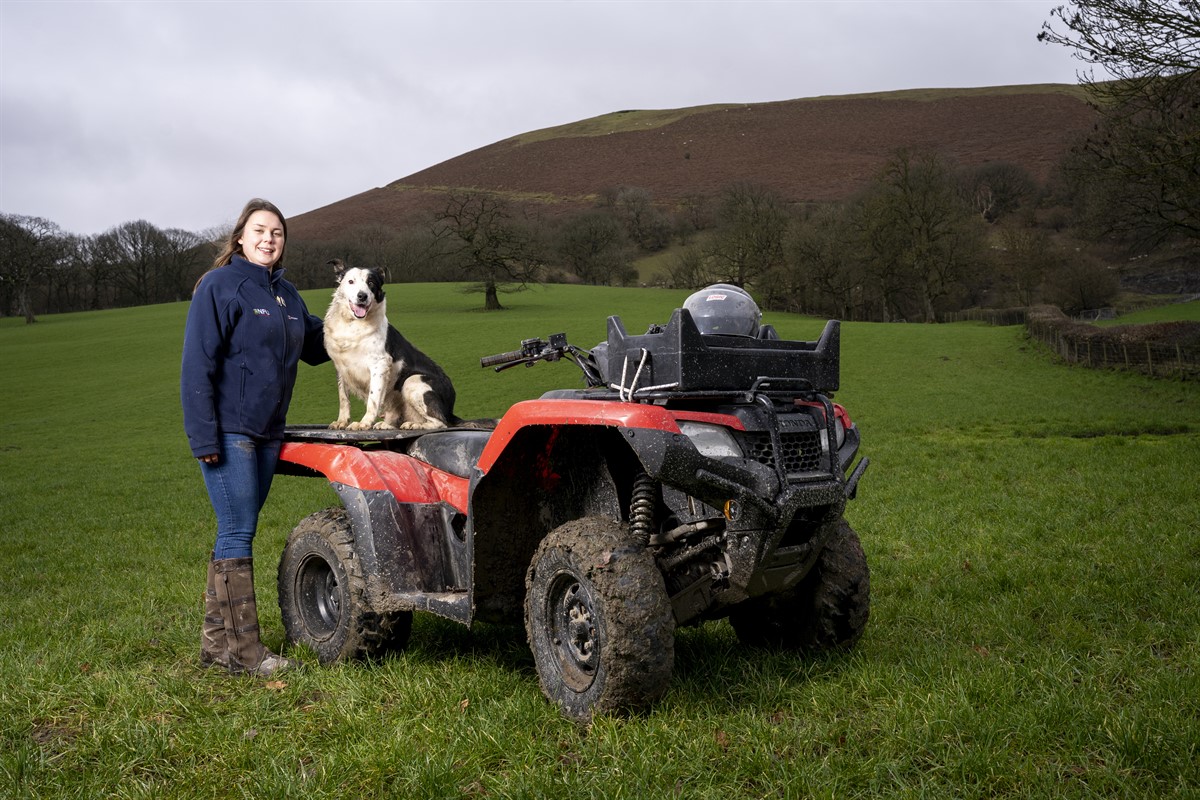On graduating with a degree in Agriculture and Business from Aberystwyth University in 2019, third-generation farmer Sian, returned home to the farm, to join the family’s traditional beef and sheep businesses near Builth wells.
She took on a working role alongside her dad Keri and cousin Jaimie. The enterprise incorporates store cattle, breeding ewes, arable and more recently poultry, with the family farming 750 acres across their owned farm and a rented farm nearby, as well as a further 1,100 acres on the Glanusk Estate in Crickhowell.
Sian said: “We have a lowland flock of Welsh Mules which are sired to Texel, Suffolk and Charolais rams. We also have three hefted Welsh hill flocks and breed all our replacements, where the Welsh Mountain ewes living on Aberedw, Caerneddau and the Black Mountains common are crossed with a Blue Faced Leicester to establish our lowland flock of Welsh Mules.
“With the uncertainty of future government support, we wanted to have more of a regular income, something that could stand on its own two feet, and not be so heavily dependent on BPS.”
Sian Davies
"We buy weaned calves and sell as forward stores or finish predominantly angus or traditional breeds that are easy to finish.
“We have rented the other land on Glanusk for almost 10 years. Since being there, we have diversified more into arable, growing Winter Wheat, Spring Barley and Fodderbeet, as well as cover crops. It is sold as a cash crop and used for wintering ewes to avoid buying supplementary feed.”

Expansion
In November 2020, Sian and her family expanded into broiler chicken production, gaining a contract to supply major supermarkets.
Behind the expansion lies the uncertainty surrounding the Basic Payment Scheme and the implementation of the Sustainable Farming Scheme: “With the uncertainty of future government support, we wanted to have more of a regular income, something that could stand on its own two feet, and not be so heavily dependent on BPS,” explains Sian.
Sian placed her first chicks on 5 November 2020, but the road to developing the poultry sheds was lengthy and slow: “We were in the planning process for two years. It was then about 12 months until everything got sign off.
Environmental responsibilities
“We have been very mindful of the already established biodiversity of the farm when putting in the sheds. We made sure we kept wild areas around the farm and considered the margins, headlands and woodlands. We also put in a new pond, alongside the two we already have that we manage and maintain. We’ve been part of Glastir Advanced for a long time now, on both farms, and we abide by all the environment rules expected of us as part of this. Our record keeping, soil sampling and nutrient management plans are all a key part of our business and we take our environmental responsibilities seriously.”

Sian has encountered many challenges, but she maintains that the expansion into broiler chickens has been well worth it: “It’s meant income every six to eight weeks. With lamb and beef, we’ll be lambing in March and those lambs won’t be sold until the end of summer, most of them the following year. We have had great support from our processor helping us to develop knowledge and skills and they are very approachable. We have completed our poultry passport training which allows us to gather a better understanding of all different aspects of the poultry industry.”
Influencing policy
The broiler enterprise isn’t the only thing keeping Sian busy. She’s made it her business to join as many groups as possible: “I was part of the NFU Cymru Next Generation group from 2018 to 2020. I met a wide range of people and had quite a lot of influence into policies and the work of NFU Cymru and the NFU.
“I was also a member of the NFU’s Student & Young Farmer Ambassador Programme in 2022 which was truly an unforgettable experience. I really valued the networking opportunities and it gave me a better understanding of the work NFU Cymru and NFU does for its members.

"Being part of the Lord Mayor’s Show was an amazing experience and it really showcased the best of British farming to the city of London. We also went on a trip to London to visit the Houses of Parliament, met with MPs, took part in Farmers for Schools training and plenty of other fantastic opportunities that I wouldn’t have had if I wasn’t part of the programme.”
New Next Generation group
Sian’s ambition throughout the ambassador programme was to bring together a NFU Cymru Brecon and Radnor next generation group. She said: “With the help and support from County Chair, Sharon Hammond and County Adviser, Stella Owen we successfully held our first meeting back in May 2022 with over 30 members from all over the county attending. NFU Cymru Deputy President Abi Reader was our guest speaker where she gave an overview of the work of NFU Cymru. We keep updated on our WhatsApp group with ongoing issues, future ideas, plans for trips and concerns members have.
“I was overwhelmed with the conversation we had regarding carbon footprinting and members wanting to participate in a carbon calculator for their farm. Given the members' backgrounds are diverse from sheep, beef, poultry, holiday lets, rural professionals, it’s an exciting opportunity to undertake this task. The next stage is for us to liaise with Alltech to see how we get the group formatted and start the process of collecting and recording data.”
Sian is also striving to increase attendance rates for people her age at her local club, Edw Valley Young Farmers. She adds: “There’s a lot of people at our meetings, but very few my age. We’re trying to target those people and say come along. Unfortunately, to get people to these events, you’ve almost got to message them individually and ask them to come.”
Looking ahead, Sian plans to push on with the construction of the next two poultry sheds, investing in a sector that she believes in. She adds: “The chickens are our priority now. It’s a fast-growing industry and you’ve only got to look at how many people eat chicken. Going back to the topic of keeping the next generation at home, it’s not just about farming the land, but everything associated with it too. The movement of rural schools and pubs, the Welsh language, and young farmers' clubs, the agricultural industry plays a vital role in this.
